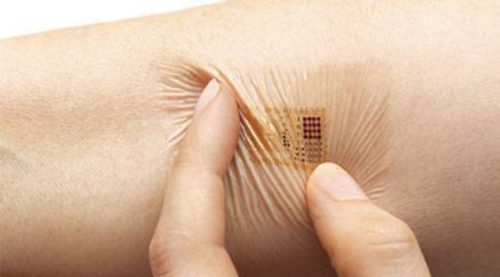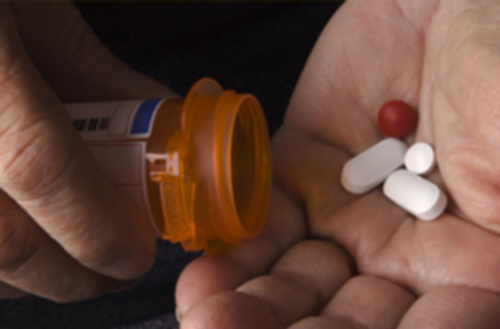Do you ever worry about your passwords? Are your devices and accounts secure enough?
Even if your password seems to be strong, you are still susceptible to a hack. Companies are trying all sorts of methods for simplifying and securing our authentication processes: fingerprint scanning, eyeball scanning, and facial recognition, just to name a few.
Forget all that. What about swallowing a pill or getting a tattoo that will solve your password problem and keep you secure?
Regina Dugan, former DARPA director and current Senior Vice President of Advanced Technology Projects at Motorola, discussed these two identification solutions in the works at D11, All Things Digital Conference in Rancho Palos Verdes, CA, last week.

Dugan discusses new forms of authentication at D11. (Image via AllThingsD)
So, how can a tattoo keep you secure?

An electronic tattoo could soon grant you access to your devices. (Image via MC10)
Dugan describes it as a kind of identification you can wear on your skin, possibly for a week at a time.
There are still many problems with wearable electronics, though. Dugan refers to the electronics and humans mixture as a “mechanical mismatch” since electronics tend to be bulky and hard while humans are curvy and soft.
Despite challenges, Motorola has gotten together with MC10, a company that has made strides in the wearable electronics department to create an electronic tattoo equipped with antennae and sensors. MC10 will be working on a tattoo that can be used for authentication.
What about pills?

Ingestible electronics could one day turn you into a walking password, keeping your identity secure. (Image via Proteus Digital Health)
Dugan equated this means of identification to taking a daily vitamin. In this case, a person would swallow a pill that has a small chip inside of it. That chip would contain a switch that is powered by way of an “inside-out potato battery,” Dugan explained. Once the pill is swallowed, stomach acids power it on and off.
“This creates an 18-bit ECG-like signal in your body and essentially your entire body becomes your authentication token,” said Dugan.
The pill, developed by Proteus Digital Health, has been FDA approved and is already being used in medical applications.
While you shouldn’t expect to see these technologies very soon, new ways of protecting our devices and information in the digital age are in the process of coming to life.
Advertisement
Learn more about Electronic Products Magazine





